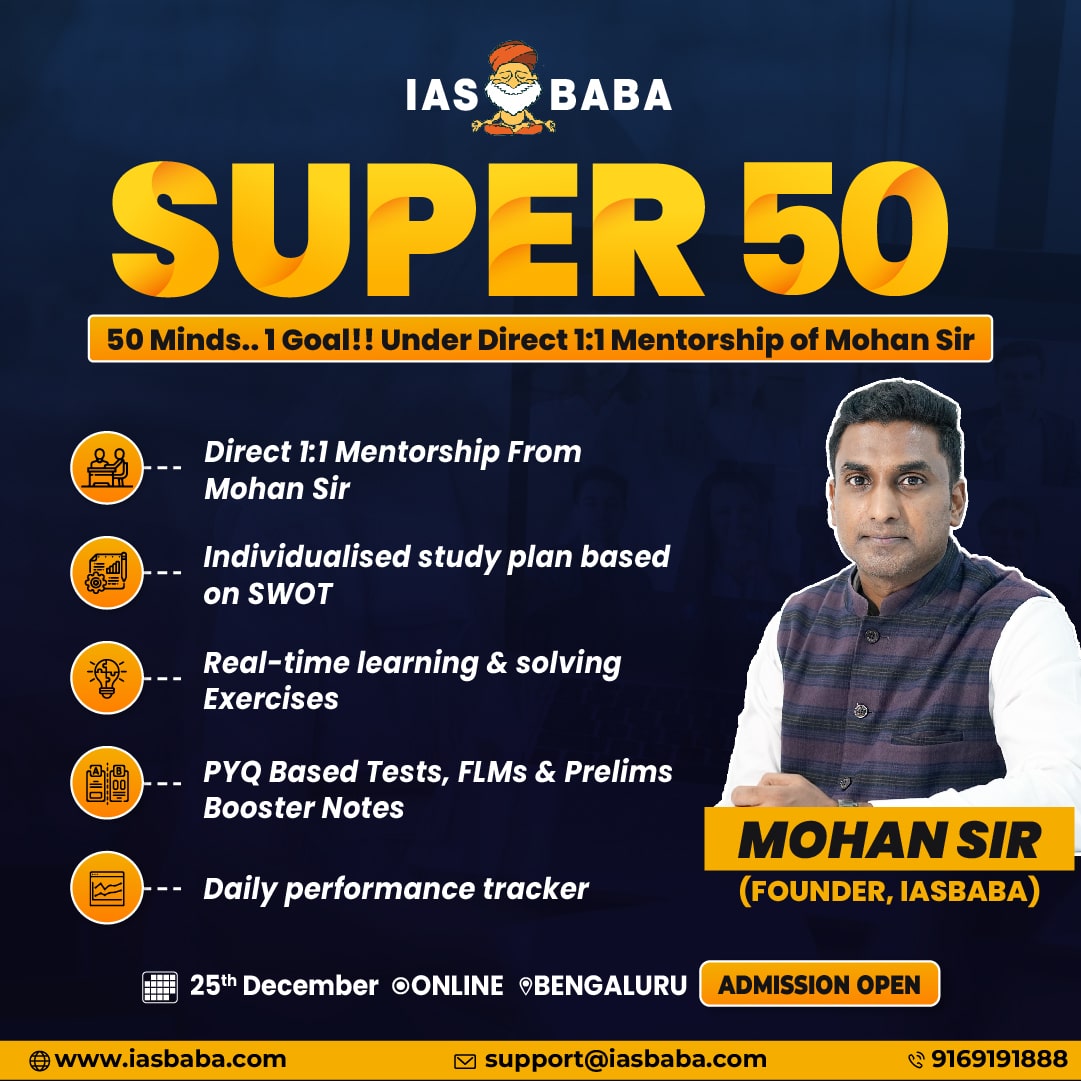IASbaba's Daily Prelims Test 2015, IASbaba's Weekly Plan, Science and Technology
Weekly Plan – 8
(30th July, 2015 – 4th August, 2015)
Weekly Plan Archives Prelims ’60+3′ Day Plan Master Plan
30th & 31st July 2015
SUBJECT &TOPIC :
Ancient History & Culture
FOCUS ON:
For Ancient History refer the below link –
http://iasbaba.com/ancient-history/
SOURCES TO REFER :
- NCERT- Class 12th ‘Ancient India’ (OLD)
- NCERT- Class 12th ‘Themes in Indian History- Part I’ (NEW)- Chapters 1 to 6
- Tamil Nadu Edition – Class 11th
For Culture refer the below link –
http://iasbaba.com/culture-strategy-2/
SOURCES TO REFER :
- Class 11th NCERT (Old)- Textbook on fine arts-Specific book on Art and Culture
- New NCERT-Class 12th-Themes in Indian History
- Tamil Nadu edition -11th and 12th
- CCRT Website
- NIOS material
- The Hindu
NOTE: Most part of ‘Culture’ section overlaps with Ancient and Medieval History. Apart from the above mentioned books, you can refer the below link for more information on Culture.
You need to study CCRT Website –http://www.ccrtindia.gov.in/visualarts.php;
http://www.ccrtindia.gov.in/performingart.php and http://www.ccrtindia.gov.in/literaryarts.php
1st August 2015
SUBJECT &TOPIC :
Economics – Public Sector Units (PSU’s)
FOCUS ON:
- Organisational Structure of PSU’s – Departmental Undertakings, Statutory Corporations, Control Boards, Co-operative Societies, Companies registered under the Companies Act 1956
- Purpose/Objectives of PSU’s
- Reforms – post Liberalisation, Privatization, Globalisation (LPG) era- Disinvestment, Memorandum of Understanding (MOUs), Miniratnas, Navaratna, Maharatna, New Companies Act, 2013, Corporate Social Responsibility (CSR)
- What is Corporate Governance? What are its Objectives?
- Industry:
- A general idea about Industrial Policies in India
- Medium and Small-Scale Enterprises (MSME’s ), Small-Scale Industries (SSI), Village and Cottage Industries (VCI)- On what basis are they classified so
- What measures are taken by Government to revive these industries?
SOURCES TO REFER :
- Macroeconomics- Class 12th , NCERT
- NCERT 11th – Indian Economic Development
- NCERT- Class 9thand 10th (for basics)
- Indian Economy – Ramesh Singh
- Sriram’s IAS Economics Notes
2nd August 2015
SUBJECT &TOPIC :
Economics – External Sector/Foreign Trade
FOCUS ON:
- India’s Foreign Policy – recent initiatives taken
- Balance of Payment (BoP)
- What constitutes BoP?
- What do you understand by ‘Invisibles’? How does it affect BoP?
- External Commercial Borrowings (ECB)
- What does it constitute, what is it meant for?
- Who regulates it?
- Who borrows from it? Example: Corporate sector , Government
- Capital and Current Account Convertibility– India has full Current Account Convertibility but when it comes to Capital Account Convertibility, it is only partial. Why?
- A general idea about MRTP Act, 1969; FERA, 1973; FEMA, 1999 – this will help you in understanding the changes made to capital account convertibility and why India is yet to go for full convertibility and what is the present status
- Current Account Deficit (CAD)
- What is CAD?
- Who reports CAD?
- Why India has huge CAD? Is a minimum CAD necessary? What are the measures taken by India to reduce CAD?
- Rupee appreciation, depreciation
- How is Rupee value determined?
- How and why does Rupee appreciate or depreciate?
- Its impact on domestic and external market? On imports and exports.
- What measures does RBI take when rupee appreciates or depreciates? How does it impact Forex Reserves?
- Difference between Depreciation and Devaluation of currency (in Indian – rupee) Why does a country devaluate its currency?
- Currency Exchange rate
- How is the currency exchange rate determined?
- Who determines it ?
- Exchange rate interms of Purchasing power parity (PPP).
- What is Nominal Effective Exchange Rate (NEER), Real Effective Exchange Rate (REER)?
- Forex Reserves
- What does it constitute?
- What is the use of having Forex Reserve?
- Why do we need more Forex Reserves?
- How can we accumulate more Forex reserves?
- Concepts like Trade deficits, Elasticity of Demand, Savings, Investment, J-curve effect
- Comprehensive Economic Partnership Agreement (CEPA), Comprehensive Economic Cooperation Agreement (CECA)
- Differences between the two agreements
- How is it different from Free Trade Agreement (FTA)?
- Benefits that Indian will have with these agreements
- A general awareness on the countries with which India has signed these agreements recently and what are the issues involved and benefits from the same
Note: Issues like GAAR, Euro Zone Crisis, Gold imports or any issue that you come across in the newspaper, make a note of it.
SOURCES TO REFER :
- Macroeconomics- Class 12th , NCERT
- NCERT 11th – Indian Economic Development
- NCERT- Class 9thand 10th (for basics)
- Indian Economy – Ramesh Singh
- Sriram’s IAS Economics Notes
3nd August 2015
SUBJECT &TOPIC :
General Science and Technology
FOCUS ON :
The questions from this section are based on your general understanding and awareness. It will be more of application oriented and latest developments on the lines of UPSC Standards.
SOURCES TO REFER:
- NCERT– Class 6th to 10th and Biology- class 12th
- Newspaper- The Hindu, Times of India, Down to Earth and Science Daily
4th August 2015
SUBJECT &TOPIC :
Environment /Ecology – Contemporary environmental issues- Climate change, Global Warming, Disasters, Pollution etc.
FOCUS ON:
The questions from this section are based on your general understanding and awareness. It will be more of application oriented and latest developments on the lines of UPSC Standards.
SOURCES TO REFER:
- ICSE books- class 9th and 10th
- NCERT Class 11th– Environmental Geography and NCERT Biology-class 12th
- NIOS- Environment Notes
- Newspapers: Times of India, The Hindu and Down to Earth
For Comprehensive Strategy on Prelims with Previous year Paper Analysis – Click Here














